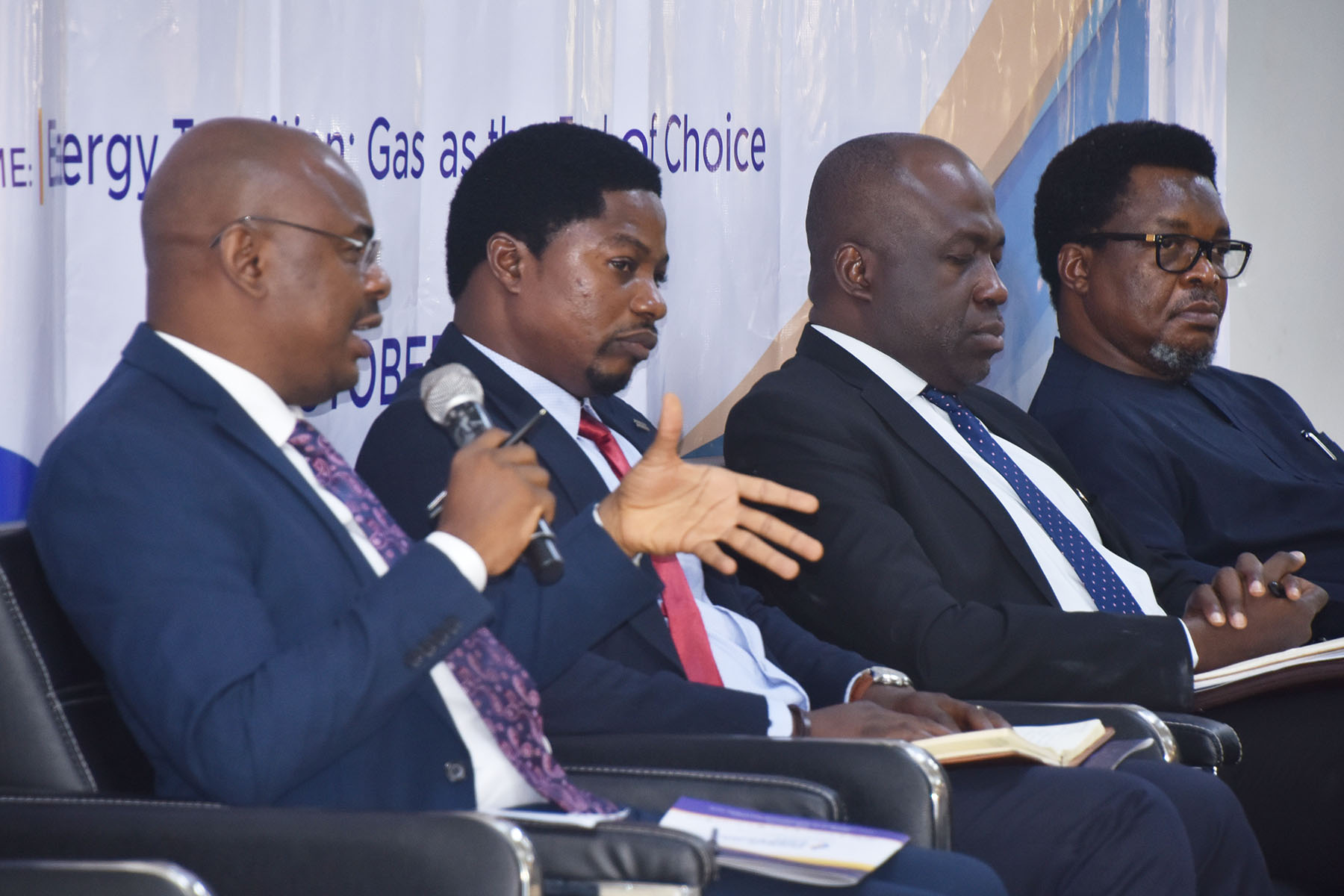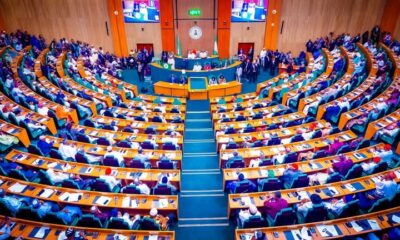Oil & Energy
FG Wants Nigerians’ To Embrace Clean Energy Innovations

The Federal Government has called on all Nigerians to embrace and support deployment of clean energy innovations and solutions across various sectors of Nigerian economy.
Minister of Science, Technology and Innovation, Senator Adeleke Mamora, who made the call at the Project Inception Workshop of the Global CleanTech Innovation Programme (GCIP), Thursday, in Lagos, said innovative clean tech entrepreneurship plays a key role in climate action.
Mamora, who was represented by the Director, Department of Environmental Sciences and Technology, Federal Ministry of Science and Technology, Dr Peter Ekweozoh, disclosed that the Global Environment Facility (GEF) has partnered with the United Nations Industrial Development Organisation (UNIDO) to systematically address the challenges of deploying CleanTech innovations, through the GCIP.
To key into the project, the Minister said a Project Steering Committee was set up at the Ministry, adding that, members of the committee were selected from the pool of experts in the public and private sectors of the economy.
“They are expected to make very important contribution to the development of our dear nation through this laudable project,” he said.
Mamora commended the efforts of UNIDO for mobilising resources to pilot this project; GEF for providing the seed financial resources; the Department of Environmental Sciences and Technology of Federal Ministry of Science, Technology and Innovation (FMSTI) for conceptualising the Nigerian CleanTech Innovation Programme (NC-TIP) that provided the national platform for this partnership with the GCIP being piloted by UNIDO and the Rural Electrification Agency (REA); and Co-creation Hub for providing niche technical services within the project.
He said the GCIP-Nigeria is to implement the project over the next three years in three components.
“Component one is to be coordinated by the private sector represented by the Co-creation Hub; component two is being implemented by the public sector driven by the FMSTI and REA, while UNIDO is in charge of component three,” the Minister explained.
With Nigeria’s population projected to hit 264 million by 2030, the Director, Department of Environmental Sciences and Technology, Federal Ministry of Science and Technology, Dr Peter Ekweozoh, said National and Subnational governments have put in place policies, programmes, projects and strategies to enable Nigeria attain Sustainable Development Goals by 2030, utilising the Micro, Small and Medium Enterprises (MSMEs) to create mass employment and wealth.
Despite all these, Ekweozoh said, the Nigerian MSME space still does not have adequate technology innovation platforms specifically tailored for and targeted to clean energy technologies, start-ups and SMEs, adding that, there is dearth of financial schemes, poor access to available funds for clean energy investment projects and limited government financial incentives to support industrial enterprises in the uptake of innovation outputs in clean energy technologies.
However, the Director disclosed that NC-TIP has provided the desired national platform for accelerated growth of the Nigeria innovation ecosystem and working with GCIP-Nigeria for the next three years, NC-TIP will strengthen the enabling environment and harness the requisite financial and technology support from development partners, the public and private sectors, including multilateral agencies in order to provide the elusive economic lifeline to innovators and start-ups in MSME sector.
On his part, the Chief Executive Officer, Co-creation Hub, Bosun Tijani, said the GEF funded UNIDO-GCIP is built around adopting an innovative approach to enabling the CleanTech ecosystem by harmonising the contributions of critical actors, while fostering an attractive business environment for the startups, SMEs and innovators.
With GCIP Nigeria, focusing on CleanTech start-ups and SMEs working on exciting and disruptive solutions, junior professional officer, Department of Energy Climate Technology and Innovation Division, Luca Longo, tells The Tide’s source that the project will provide added value for domestic economic and industrial development by bridging the gap between CleanTech Innovators and investors, paving the way for new business opportunities.
Oil & Energy
FG Woos IOCs On Energy Growth
The Federal Government has expressed optimism in attracting more investments by International Oil Companies (IOCs) into Nigeria to foster growth and sustainability in the energy sector.
This is as some IOCs, particularly Shell and TotalEnergies, had announced plans to divest some of their assets from the country.
Recall that Shell in January, 2024 had said it would sell the Shell Petroleum Development Company of Nigeria Limited (SPDC) to Renaissance.
According to the Minister of State for Petroleum Resources (Oil), Heineken Lokpobiri, increasing investments by IOCs as well as boosting crude production to enhancing Nigeria’s position as a leading player in the global energy market, are the key objectives of the Government.
Lokpobiri emphasized the Ministry’s willingness to collaborate with State Governments, particularly Bayelsa State, in advancing energy sector transformation efforts.
The Minister, who stressed the importance of cooperation in achieving shared goals said, “we are open to partnerships with Bayelsa State Government for mutual progress”.
In response to Governor Douye Diri’s appeal for Ministry intervention in restoring the Atala Oil Field belonging to Bayelsa State, the Minister assured prompt attention to the matter.
He said, “We will look into the issue promptly and ensure fairness and equity in addressing state concerns”.
Lokpobiri explained that the Bayelsa State Governor, Douyi Diri’s visit reaffirmed the commitment of both the Federal and State Government’s readiness to work together towards a sustainable, inclusive, and prosperous energy future for Nigeria.
While speaking, Governor Diri commended the Minister for his remarkable performance in revitalisng the nation’s energy sector.
Oil & Energy
Your Investment Is Safe, FG Tells Investors In Gas
The Federal Government has assured investors in the nation’s gas sector of the security and safety of their investments.
Minister of State for Petroleum Resources (Gas), Ekperikpe Ekpo, gave the assurance while hosting top officials of Shanghai Huayi Energy Chemical Company Group of China (HUAYI) and China Road and Bridge Corporation, who are strategic investors in Brass Methanol and Gas Hub Project in Bayelsa State.
The Minister in a statement stressed that Nigeria was open for investments and investors, insisting that present and prospective foreign investors have no need to entertain fear on the safety of their investment.
Describing the Brass project as one critical project of the President Bola Tinubu-led administration, Ekpo said.
“The Federal Government is committed to developing Nigeria’s gas reserves through projects such as the Brass Methanol project, which presents an opportunity for the diversification of Nigeria’s economy.
“It is for this and other reasons that the project has been accorded the significant concessions (or support) that it enjoys from the government.
“Let me, therefore, assure you of the strong commitment of our government to the security and safety of yours and other investments as we have continually done for similar Chinese investments in Nigeria through the years”, he added.
Ekpo further tasked investors and contractors working on the project to double their efforts, saying, “I want to see this project running for the good of Nigeria and its investors”.
Earlier in his speech, Leader of the Chinese delegation, Mr Zheng Bi Jun, said the visit to the country was to carry out feasibility studies for investments in methanol projects.
On his part, the Managing Director of Brass Fertiliser and Petrochemical Ltd, Mr Ben Okoye, expressed optimism in partnering with genuine investors on the project.
Oil & Energy
Oil Prices Record Second Monthly Gain
Crude oil prices recently logged their second monthly gain in a row as OPEC+ extended their supply curb deal until the end of Q2 2024.
The gains have been considerable, with WTI adding about $7 per barrel over the month of February.
Yet a lot of analysts remain bearish about the commodity’s prospects. In fact, they believe that there is enough oil supply globally to keep Brent around $81 this year and WTI at some $76.50, according to a Reuters poll.
Yet, like last year in U.S. shale showed, there is always the possibility of a major surprise.
According to the respondents in that poll, what’s keeping prices tame is, first, the fact that the Red Sea crisis has not yet affected oil shipments in the region, thanks to alternative routes.
The second reason cited by the analysts is OPEC+ spare capacity, which has increased, thanks to the cuts.
“Spare capacity has reached a multi-year high, which will keep overall market sentiment under pressure over the coming months”, senior analyst, Florian Grunberger, told Reuters.
The perception of ample spare capacity is definitely one factor keeping traders and analysts bearish as they assume this capacity would be put into operation as soon as the market needs it. This may well be an incorrect assumption.
Saudi Arabia and OPEC have given multiple signs that they would only release more production if prices are to their liking, and if cuts are getting extended, then current prices are not to OPEC’s liking yet.
There is more, too. The Saudis, which are cutting the most and have the greatest spare capacity at around 3 million barrels daily right now, are acutely aware that the moment they release additional supply, prices will plunge.
Therefore, the chance of Saudi cuts being reversed anytime soon is pretty slim.
Then there is the U.S. oil production factor. Last year, analysts expected modest output additions from the shale patch because the rig count remained consistently lower than what it was during the strongest shale boom years.
That assumption proved wrong as drillers made substantial gains in well productivity that pushed total production to yet another record.
Perhaps a bit oddly, analysts are once again making a bold assumption for this year: that the productivity gains will continue at the same rate this year as well.
The Energy Information Administration disagrees. In its latest Short-Term Energy Outlook, the authority estimated that U.S. oil output had reached a record high of 13.3 million barrels daily that in January fell to 12.6 million bpd due to harsh winter weather.
For the rest of the year, however, the EIA has forecast a production level remaining around the December record, which will only be broken in February 2025.
Oil demand, meanwhile, will be growing. Wood Mackenzie recently predicted 2024 demand growth at 1.9 million barrels daily.
OPEC sees this year’s demand growth at 2.25 million barrels daily. The IEA is, as usual, the most modest in its expectations, seeing 2024 demand for oil grow by 1.2 million bpd.
With OPEC+ keeping a lid on production and U.S. production remaining largely flat on 2023, if the EIA is correct, a tightening of the supply situation is only a matter of time. Indeed, some are predicting that already.
Natural resource-focused investors Goehring and Rozencwajg recently released their latest market outlook, in which they warned that the oil market may already be in a structural deficit, to manifest later this year.
They also noted a change in the methodology that the EIA uses to estimate oil production, which may well have led to a serious overestimation of production growth.
The discrepancy between actual and reported production, Goehring and Rozencwajg said, could be so significant that the EIA may be estimating growth where there’s a production decline.
So, on the one hand, some pretty important assumptions are being made about demand, namely, that it will grow more slowly this year than it did last year.
This assumption is based on another one, by the way, and this is the assumption that EV sales will rise as strongly as they did last year, when they failed to make a dent in oil demand growth, and kill some oil demand.
On the other hand, there is the assumption that U.S. drillers will keep drilling like they did last year. What would motivate such a development is unclear, besides the expectation that Europe will take in even more U.S. crude this year than it already is.
This is a much safer assumption than the one about demand, by the way. And yet, there are indications from the U.S. oil industry that there will be no pumping at will this year. There will be more production discipline.
Predicting oil prices accurately, even over the shortest of periods, is as safe as flipping a coin. With the number of variables at play at any moment, accurate predictions are usually little more than a fluke, especially when perceptions play such an outsized role in price movements.
One thing is for sure, though. There may be surprises this year in oil.
lrina Slav
Slav writes for Oilprice.com.
-
News5 days ago
#EndBadGovernance Protesters Storm Court, Demand Sowore’s Release
-
Nation5 days ago
Plane Crash-Lands, Tyre Bursts Upon Landing In Kano
-
News5 days ago
Border dispute: UN lauds Nigeria, Cameroon for implementing ICJ’s ruling
-
Business5 days ago
S’Korean Airplane Catches Fire … 176 Passengers evacuate
-

 Politics5 days ago
Politics5 days ago2025 Budget: Reps Dismisses Bribery Allegations
-

 Rivers5 days ago
Rivers5 days agoNot Too Young To Lead Founder Extols Fubara’s Virtues
-
Nation5 days ago
EFCC Vs Yahaya Bello: Court Adjourns To April 3 As First Witness Testifies
-

 News5 days ago
News5 days agoUK Appoints British-Nigerian As Trade Envoy To Nigeria

